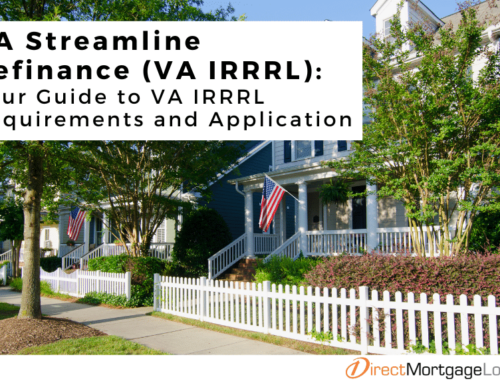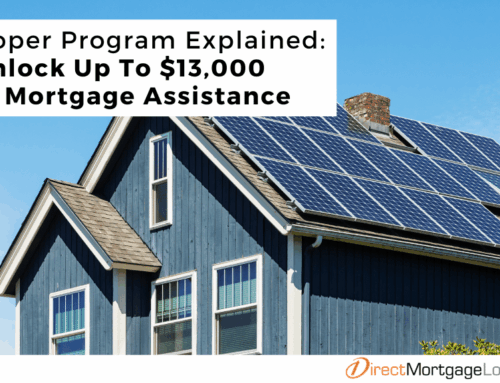Considering a refinance for your investment property’s mortgage? In this article, we’ll explore why you might choose to refinance, the best time to do it, and walk you through the step-by-step process. We’ll also look at the pros and cons to help you decide if refinancing aligns with your investment goals. Let’s dive in!
Subscribe to our blog to receive notifications of posts that interest you!
Can you refinance an investment property?
Just like with a primary residence, you can refinance your investment property. However, there are usually stricter requirements involved. Despite this, refinancing could help lower your interest rate, make improvements to the property, or free up cash to invest in additional investment properties.
Why would you refinance an investment property?
There are several reasons why you might want to refinance an investment property:
- Lower the Interest Rate: If mortgage rates have decreased since you first secured your loan, or if your credit score has improved, refinancing could help you lock in a lower interest rate. This could reduce your monthly payments and potentially save you money over the life of the loan.
- Change Loan Terms: Refinancing gives you the flexibility to adjust the length of your loan. You could extend the term to decrease your monthly payments, or shorten the term to pay off the mortgage sooner and save on interest.
- Access Home Equity: You could access the equity you’ve built up in your investment property through a cash out refinance. This could provide funds for various purposes, like making property improvements, consolidating debt, or expanding your real estate portfolio.
- Expand Your Portfolio: The proceeds from a cash out refinance could be used as a down payment on an additional investment property, which could help generate extra rental income.
When To Refinance Investment Properties
There are specific situations in which it may be beneficial to refinance your investment property. If current interest rates are lower than your existing mortgage rate, or if your credit score has improved, refinancing may reduce your monthly payments and save you money over time. Additionally, if the value of your property has increased, refinancing could allow you to access the equity you’ve built up.
How To Refinance An Investment Property
- Consult with a Loan Officer: Start by speaking with a Loan Officer to discuss your refinancing goals and determine if you meet the eligibility requirements. Most lenders require you to have anywhere from 15%- 25% equity in your investment property to refinance.
- Gather Financial Documents: Prepare the necessary documentation, which typically includes:
- Proof of income (tax returns, W-2s, 1099 forms)
- Bank statements and investment account information
- Title insurance
- Property tax records
- Submit Your Refinance Application: Once you’ve gathered the required documents, submit your refinance application.
- Lock in Your Mortgage Rate: Once you’ve been approved for refinancing, you’ll need to decide whether to lock in your interest rate. Locking in guarantees the interest rate on your loan for a certain period, typically 30 to 60 days, protecting you from potential rate increases.
- Home Appraisal: Before the underwriting process, your lender will require a home appraisal to assess the property’s value. The appraisal report will be used to determine the loan amount you can qualify for.
- Underwriting: The underwriting process involves a thorough review of your financial information, credit history, and property details. The lender will assess your financial readiness, income stability, and debt-to-income ratio to ensure you can manage the new mortgage.
- Closing on Your Mortgage Loan: After completing the underwriting process and clearing all approval conditions, you’ll be scheduled to close on your refinance loan. This involves attending a closing meeting where you’ll review and sign the final loan documents. Once the closing is complete, your new mortgage will be funded, and your previous mortgage will be replaced.
Refinance Investment Property: Pros and Cons
It’s important to weigh the potential benefits and drawbacks before deciding if refinancing your investment property is the right choice for you.
Pros Of Refinancing an Investment Property
- Increase Cash Flow: Securing a lower interest rate could reduce your monthly mortgage payment, freeing up cash for repairs, upgrades, or other investments.
- Consolidate Debt: If you have multiple loans related to your investment property, refinancing could help you consolidate the debts into a single loan with a lower interest rate, potentially saving you money.
- Adjust Mortgage Terms: Refinancing allows you to adjust your mortgage terms to better align with your financial goals. For instance, you might choose to extend the loan term to lower your monthly payments or shorten the term to pay off the loan faster.
Cons Of Refinancing an Investment Property
- Stricter Requirements: Lenders typically have stricter requirements for investment property refinances due to the increased risk involved. This could include higher credit scores, lower debt-to-income ratios, and additional documentation.
- Increased Total Interest: If you refinance to a longer loan term, you may end up paying more in total interest over the life of the loan. This is because you’ll be making payments for a longer period.
- Risk of Negative Equity: If your property value decreases significantly, you may find yourself in a situation where you owe more on your mortgage than the property is worth. This is known as negative equity and could make it difficult to sell the property or refinance in the future.
Should I refinance my investment property?
Deciding whether to refinance your investment property depends on your specific financial situation. Factors such as your current interest rate, the property’s value, and your long-term investment goals will all influence whether refinancing is a good choice. To determine if refinancing is right for you, it’s best to speak with a Loan Officer who can review your specific situation.
FAQ’s About Refinancing an Investment Property
Is it difficult to refinance an investment property?
Refinancing an investment property could be more difficult than refinancing a primary residence. This is because investment properties are considered riskier due to their fluctuating rental income and property values. To qualify, you usually need a higher credit score, a lower debt-to-income ratio, and substantial equity in the property. Lenders may also need proof of rental income to evaluate the property’s profitability. These stricter requirements could make the refinancing process more difficult.
What is the refinance rate for investment property?
When you refinance an investment property, the interest rate varies based on factors like your credit score, the property’s value, and the type of loan. To get an accurate estimate of the interest rate you might qualify for, it’s best to speak with a Loan Officer.
Can I refinance my investment property and sell it?
Yes, it is possible to refinance your investment property and then sell it, but it may not always be the best financial decision. Refinancing usually requires upfront costs, such as closing costs, which could outweigh any potential benefits if you intend to sell the property soon after.
Can you do a cash out refinance on an investment property?
Yes, you could do a cash out refinance on an investment property. This option allows you to access the equity you’ve built up by replacing your existing mortgage with a new, larger loan. The difference between the new loan amount and your current mortgage balance is given to you as a lump sum. You could use this cash for various purposes, such as property improvements, buying more rental properties, or consolidating debt.
How soon can you refinance an investment property?
To refinance an investment property, you usually need to wait six months to a year. However, this can vary based on the lender, your financial situation, credit score, property value, and current mortgage terms. It’s best to speak with your Loan Officer directly to see how soon you could refinance your investment property.
*By refinancing your existing loan, total finance charges may be higher over the life of your loan. Eligibility and approval is subject to completion of an application and verification of home ownership, occupancy, title, income, employment, credit, home value, collateral and underwriting requirements. Direct Mortgage Loans, LLC NMLS ID# is 832799 (www.nmlsconsumeraccess.com). Direct Mortgage Loans, LLC office is located at 11011 McCormick Rd Ste 400, Hunt Valley, MD 21031







Leave A Comment
You must be logged in to post a comment.